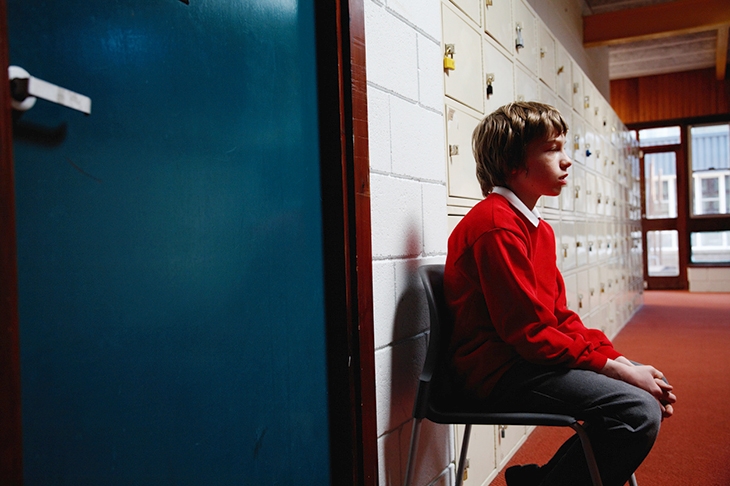As a disillusioned former English teacher, I miss talking to teenagers about books. But I also rejoice in my freedom from the dreaded Ofsted. At first glance, Ofsted’s new inspection framework might promise a breath of fresh air to teachers suffocating under a pile of data. Assessment will in future be judged as part of the more open ‘quality of education’ area, rather than being a focus in its own right.
But a closer read reveals that Ofsted is fundamentally out of touch. ‘Behaviour and attitudes’ will also become one of the four areas judged. Schools will be encouraged to get ‘tough’ on disruptive students. In June last year, the head of Ofsted, Amanda Spielman, outlined her approach: ‘I think it’s entirely appropriate to use sanctions, such as writing lines, community service in the school grounds like picking up litter, and school detentions.’ Spielman advocates rules and punishments set down by senior managers and even the state. But she has never been a teacher and so has never personally had to sanction a student. She comes from the hierarchical world of business. What do you do when pupils swear in your face instead of writing their lines, or when they don’t show up for detention? Should we exclude all those inconvenient souls?
Research by Barnardo’s has shown that excluded children are at serious risk of becoming involved in violence. And children are dying on the streets. In January, 14-year-old Jaden Moodie was brutally stabbed to death less than a mile away from a sixth-form college at which I once worked. Pupil Referral Units are overstretched and far from ideal in any case. Sarah Jones, chair of the All–Party Parliamentary Group on Knife Crime, has said: ‘Professionals talk about the “PRU to prison pipeline”.’
The NHS recorded a 14 per cent increase between 2017 and 2018 in ‘consultant episodes due to assault by a sharp object’. In cases involving possession of a knife or offensive weapon during the same period, those aged ten to 17 were the offenders in 21 per cent of cases.
Ofsted’s focus on behaviour will not help students who persistently refuse to do as they are told. In my experience, disruptive students are often those who feel the system has nothing to offer them. Forcing GCSE students who are predicted E grades to read Victorian literature when they have no idea what a quarter of the words mean feels, for teachers, worse than futile.
Punishing those students proves to them that school is against them. It would be more useful to teach these students something they are interested in, or to demonstrate the relevance of English to ‘real life’. But teachers are obliged by a rigid system to slog through termly assessments geared towards passing a GCSE. I have watched many teenagers locked in the system become increasingly cynical. I don’t believe a tough stance would have helped them.
Students who are not co-operating at school might be made more passive by this kind of punishment. But no punishment can make someone want to learn. Even if a student doesn’t love the subject, they need to understand its purpose.
Another reason students are disruptive is unhappiness. If a person is miserable, addressing how they feel is more useful than detention. The government recognises the benefits of school counselling, but in 2016, only 62 per cent of schools offered such services. An increased focus on good-quality counselling would make more sense.
A third reason students do not always co-operate is that young people tend to exist in the present, rather than looking to their futures. A girl I taught told me she was hoping to be transferred to a local Pupil Referral Unit because she had heard they ‘let you go out for a fag during classes’.
Teachers like me are getting out. A 2018 National Education Union survey found that 80 per cent of classroom teachers at some time seriously considered leaving the profession. Is a tough stance really the way to help them deal with difficult kids? Difficult students are often unhappy people whose lives will end up harder if they are treated as failures and permanently excluded from school.






Comments